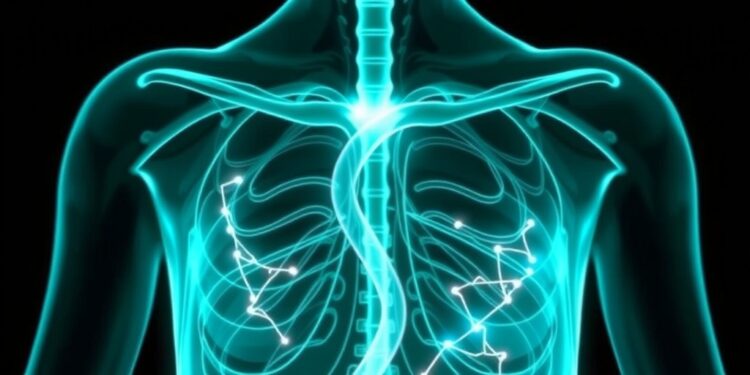Ochsner Health’s renowned Medical Director for Cardiac Rehabilitation and Preventive Cardiology, Dr. Carl J. “Chip” Lavie, Jr., has made significant strides in cardiovascular health through a pioneering study that explores lipid-lowering strategies. This research, which is prominently featured in the well-respected Mayo Clinic Proceedings, was led by Dr. Maciej Banach from Poland, a figure known for his leadership in the International Lipid Expert Panel (ILEP). The study delves deep into the comparative effectiveness of lipid-lowering therapies, particularly focusing on the benefits of combining statins with ezetimibe—a treatment protocol that may alter the landscape of cardiovascular prevention and care.
At its core, the study investigates the therapeutic styles of combining statins with ezetimibe against traditional statin monotherapy. It lays out compelling evidence that this combination therapy not only achieves lower levels of low-density lipoprotein cholesterol (LDL-C) but also significantly decreases cardiovascular mortality risk and other adverse health events. With over 108,000 high-risk participants from 14 extensive studies examined, the findings reveal a substantial mean reduction in LDL cholesterol by an impressive 12.96 mg/dL, which translates clinically into a 19% reduction in all-cause mortality, an 18% reduction in major adverse cardiovascular events, and a remarkable 17% reduction in stroke occurrences.
The ramifications of this research are substantial, particularly for individuals classified as high and very high risk with respect to cardiovascular disease. The implication of these results advocates for a paradigm shift in how clinicians approach LDL-C management, suggesting that combination therapy should be integrated early into treatment protocols. This proactive method could lead to vastly improved patient outcomes, pushing towards a future where heart disease and associated complications are significantly curtailed through effective early interventions.
Dr. Lavie emphasizes the importance of adopting this combination approach to lipid-lowering therapy, highlighting its role as a crucial strategy for addressing the global burden of cardiovascular disease. By focusing efforts on optimizing LDL-C reductions early on, clinicians can make significant strides in promoting heart health and ultimately saving lives. The study urges healthcare professionals to reconsider existing treatment strategies, especially in patients at tremendous risk of cardiovascular events, advocating for proactive measures before any catastrophic incidents occur.
Moreover, the research couples favorable safety profiles with its findings. The combination of statins and ezetimibe demonstrates similar risks of adverse effects when compared to statin monotherapy, which is vital for patient adherence and long-term health management. Understanding that both therapeutic measures carry comparable safety risks can empower practitioners to transition towards combination approaches without fear of exacerbating patient health conditions.
In an era marked by increasing cardiovascular disease prevalence, these insights present an invaluable contribution to medical understanding. They underscore a critical moment in health management where the discord between traditional protocols and new, innovative approaches can no longer be ignored. For high-risk individuals, this could mean the difference between a life of chronic cardiovascular issues and the achievement of healthier, longer lives.
The investigative efforts highlight the alignment of drug therapies with patient outcomes, showcasing the necessity for healthcare systems to embrace such revelations. The implications stretch beyond just the patient’s immediate health, potentially reducing long-term healthcare costs and reallocating resources towards preventive measures that can be instituted across broader populations.
In conclusion, this study stands as a testament to the evolving nature of healthcare and the increasingly nuanced understandings of how best to prevent cardiovascular disease. The adoption of combination therapies as a staple in treatment regimens could signify a breakthrough moment, prompting healthcare reform that prioritizes evidence-based practices tailored to individual risk profiles.
Patients can take comfort in knowing that the latest research supports a proactive and informed approach toward their health, allowing them to engage actively in discussions with their healthcare providers. This work ultimately serves to empower both patients and clinicians alike in navigating the intricate landscape of cardiovascular disease prevention.
With the call for early interventions echoing throughout the findings, the medical community is urged to act on this vital information—this is not merely an advancement in treatment but a clarion call for a shift towards more effective preventative healthcare strategies. The research encapsulates an exciting juncture in the continual quest for better health, showcasing an opportunity to enhance cardiovascular outcomes for millions.
This pivotal study not only reinforces the need for innovative approaches to lipid management but also serves as a rallying point for ongoing research in the field of cardiology. The commitment to excellence in patient care, alongside robust clinical research, represents the pathway forward in combating the global health crisis posed by cardiovascular diseases.
Such groundbreaking research fortifies hope for thousands of patients facing the realities of cardiovascular conditions. As the medical landscape evolves, continuous adaptation and acceptance of new treatment paradigms will be essential in promoting heart health across demographics. The future of cardiovascular care holds promise, driven by the relentless pursuit of knowledge and improved strategies for patient management.
Subject of Research: Comparative Efficacy of Lipid-Lowering Therapies
Article Title: Impact of Lipid-Lowering Combination Therapy With Statins and Ezetimibe vs Statin Monotherapy on the Reduction of Cardiovascular Outcomes: A Meta-analysis
News Publication Date: 23-Mar-2025
Web References: ScienceDirect
References: DOI Link
Image Credits: N/A
Keywords: Cardiovascular health, lipid-lowering therapies, statins, ezetimibe, combination therapy, patient management, disease prevention, major adverse cardiovascular events, LDL cholesterol, meta-analysis.




